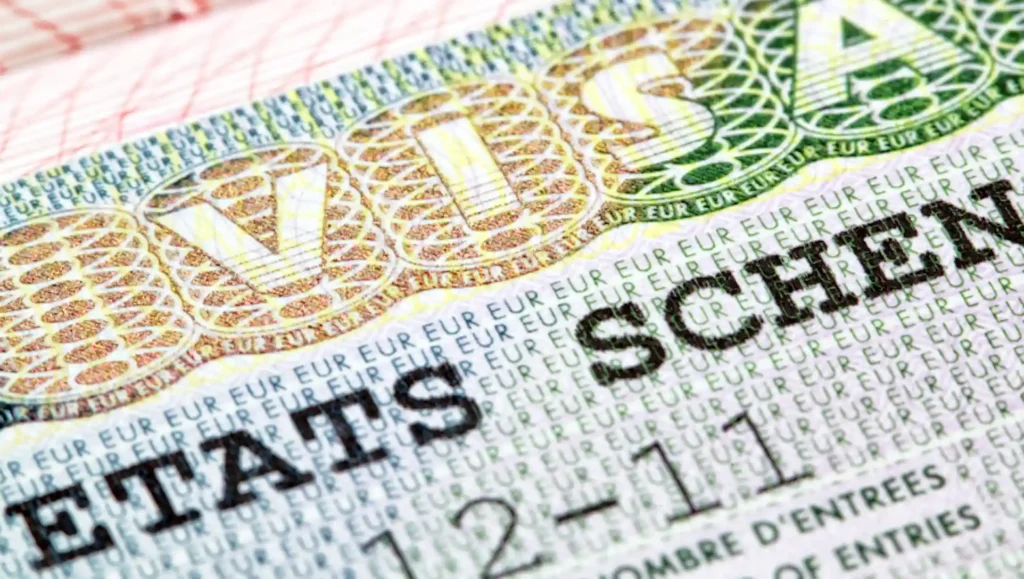
The EU Can Strip Visa-Free Travel: New Policy Passes
Sarah Pardi - October 24, 2025
Home > Travel Requirements, Policy & Authorization > The EU Can Strip Visa-Free Travel: New Policy Passes
Share this post
Today, many people from around the globe can travel to popular European countries (like France and Germany) without a visa. Exemptions are thanks to longstanding agreements with the European Union.
Many travelers are required to obtain a Schengen Visa before traveling to Europe, even for short trips. Whether it's 3 days or 30, a visa is obligatory.
While straightforward enough, the application process can be time-consuming and expensive, often requiring applicants to travel to larger cities for in-person visa appointments (which is currently one of the Schengen visa requirements).
Being visa-exempt is a great privilege that allows citizens of several other countries, like the US, UK, and Canada, to travel with less paperwork, administration, and, well, less hassle.
However, the European Union just updated a policy that could reverse this privilege for any given country.

What is changing?
The European Parliament updated its legislation for visa exemptions. They have added new clauses that make it easier to strip a country of its visa-exempt status (albeit temporarily).
Currently, the EU can only strip third countries (countries outside of Europe) of their visa-exempt status under very specific circumstances. When the exemption status is suspended, it is temporary and typically only impacts specific types of visas.
The following grounds have been introduced:
- A decline in the EU’s relations with a third country, especially concerning human rights, fundamental freedoms, or serious breaches of the United Nations Charter.
- Granting citizenship through investment schemes to individuals with no genuine connection to the country, in return for set payments or investments.
- A country’s visa waiver policy not matching the EU’s, especially when its close proximity to the EU could result in more unauthorized arrivals from other third countries.
- Hybrid threats and weaknesses in laws and procedures related to document security.
That isn't the only change, however.
The European Parliament has also updated its duration of visa-exemption suspension.
Before the introduced change, the EU had the power to suspend visa-exemption for 9 months, with a possibility to extend an additional 18 months.
Heading abroad?
Make sure your trip is insured and travel with peace of mind.
Now, it is possible to enforce suspension periods of 12 months with the possibility of extending an additional 24 months.
In short, 3 years.
This all comes in addition to one of the biggest amendments seen. The EU has introduced the ability to revoke visa-exempt status permanently if the third country doesn't address the grounds that led to their temporary suspension.
It is worth noting that for 24-month extended suspensions, the EU has said that it might not affect the country's entire population, but instead only affect diplomats and government officials. Either way, it would be in the hands of the European Parliament.
"Visa-free travel to the EU benefits both foreign citizens and the EU. But if citizens of third countries abuse this advantage, the EU must have all the necessary tools to address the situation." - Radosław Sikorski, Polish Minister of Foreign Affairs

What does this mean for travelers?
At face value, this policy does not change anything for travelers. The change is purely governmental. That said, this change does pave the road for future changes, though that doesn't mean one is guaranteed.
As a hypothetical, if a country's visa exemption status were to be suspended, citizens of that country would need to apply for a Schengen visa before traveling abroad to Europe. The process involves multiple steps, like:
- Attending an in-person visa appointment.
- Obtaining compliant travel insurance ahead of your trip. Remember that the policy has to adhere to Schengen visa travel insurance requirements.
- Handing over bank statements that prove you can afford your trip overseas.
- Paying visa fees (up to 90 euros per person).
- Etc.
Again, this is an introduced policy change and does not have any immediate effect on travelers.
What to do next
In today's rapidly changing geopolitical climate, it's as important as ever to keep an eye on travel requirements and regulations before heading abroad.
Before your next trip to Europe, make sure that you check the official Embassy website for your destination. It's really important to understand which new changes, policies, and regulations might affect you.
Frequent travelers should make an effort to stay in the know in the coming months and years (you can easily do that by following Insurte's Travel Guide).
In the coming years, Schengen visa applications will be going online, through a new official site called the EU Visa Application Platform, or EU VAP for short.

What happens if visa-exemption is suspended?
If visa-exempt status is suspended, under current rules, it will be temporary, giving the third country an opportunity to address the grounds for suspension.
Under the new rules, if the third country fails to address the reasons, it is possible for visa-exemption to be extended even longer, and/or to be revoked permanently.
If a country were to meet the grounds for a visa-exemption suspension, its citizens may need to go through the Schengen visa application process before traveling to the following countries:
Austria, Belgium, Bulgaria, Croatia, Czech Republic, Denmark, Estonia, Finland, France, Germany, Greece, Hungary, Iceland, Italy, Latvia, Liechtenstein, Lithuania, Luxembourg, Malta, Netherlands, Norway, Poland, Portugal, Romania, Slovakia, Slovenia, Spain, Sweden, and Switzerland.
This includes popular cities like Paris, Rome, Barcelona, Amsterdam, and several others.
Make sure to follow Insurte for the most recent and relevant updates about European travel.
Related posts
Upcoming travels ? Get Insured !
Find the right insurance for your trip by using our powerful comparison tool!
Sarah Pardi - February 19, 2026
Sarah Pardi - February 13, 2026
Sarah Pardi - February 12, 2026
Sarah Pardi - February 6, 2026





